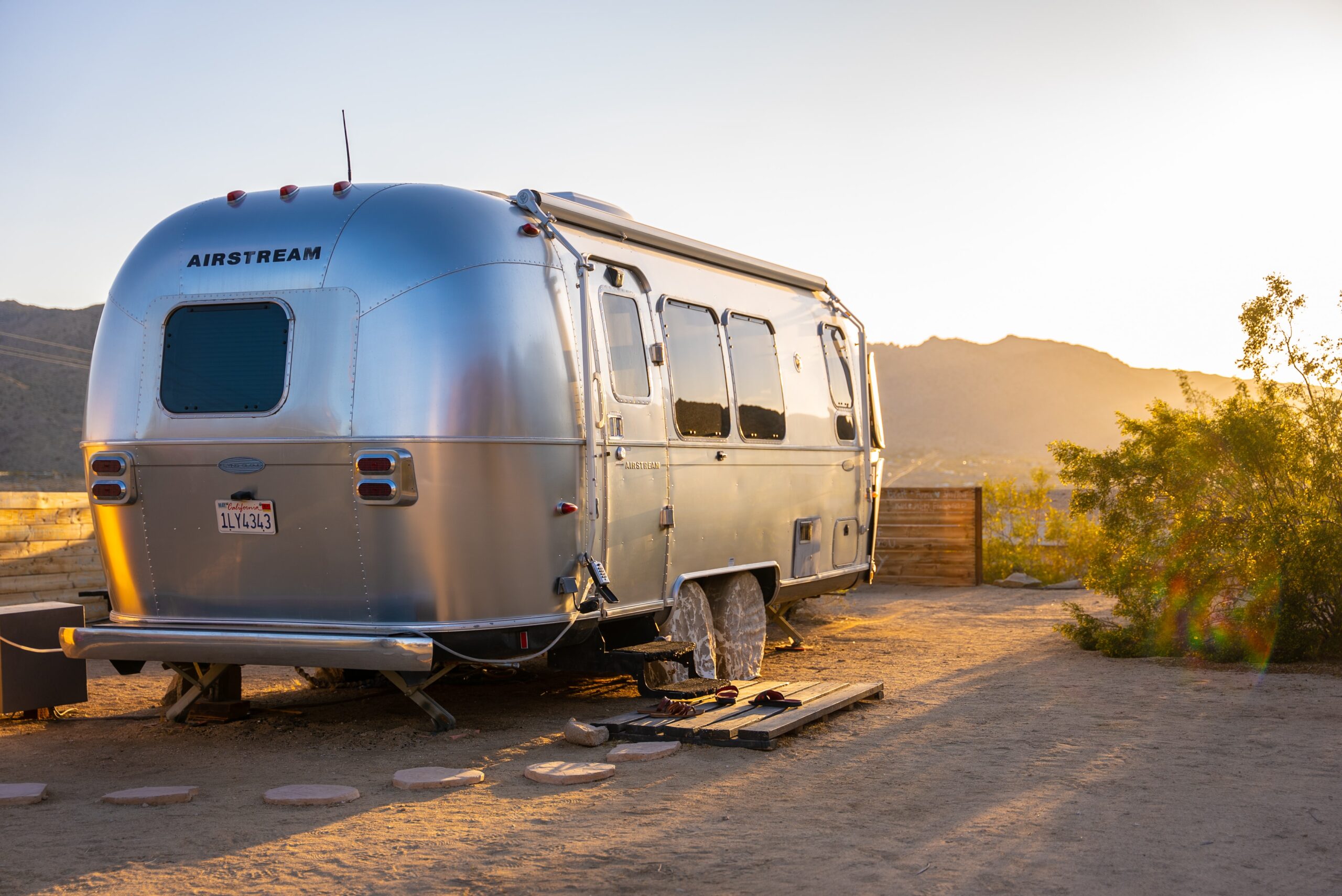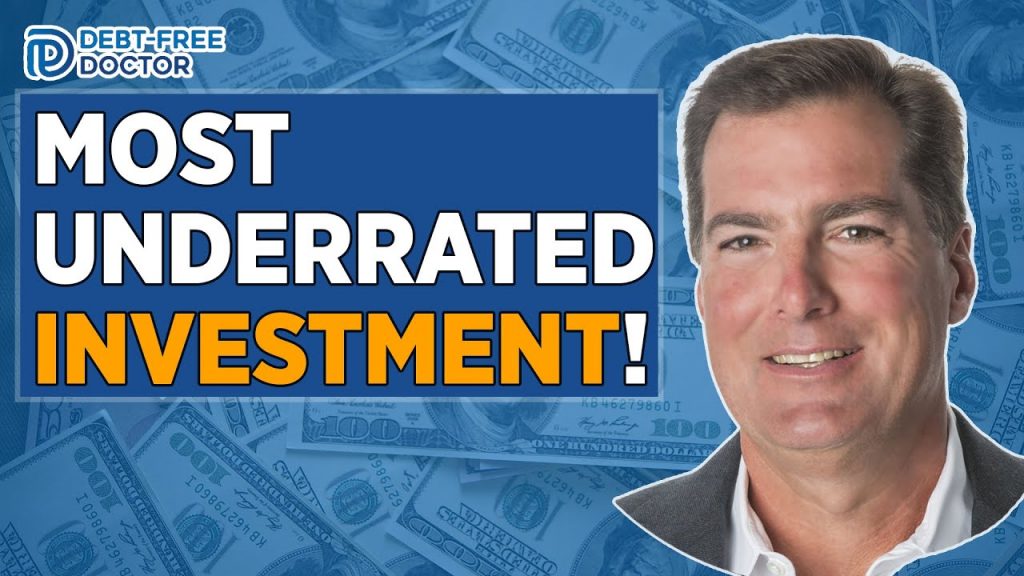It all started with a recent trip down to Lafayette, LA to spend the day with mobile home park mogul Chris Rood.

I knew something was up when I heard Warren Buffett was getting into the mobile home investing space a few years ago.
If the world’s greatest investor is putting billions into a certain asset class then I’ve learned to pay attention.
So I sought out a mentor in this space (who happened to live in my state) and began the process of learning all I can to find out if it’s right for me.
Not only did Chris and I take a look at his mobile home park operation; he also informed me about another asset class that’s still low on the radar yet being an incredible opportunity when it comes to revenue.
This new class he’s talking about is RV parks.
Isn’t it funny how you pass by things everyday without noticing but as soon as you start focusing on them, they’re everywhere! As we were driving around South Louisiana, I couldn’t help notice the number of RV parks along I-10.
But here’s the deal. They were all completely FULL.
If there’s one thing that I’ve learned about investing it’s this:
Demand > Supply = Opportunity
There’s opportunity whenever the demand is GREATER than the supply.
Whether you realize it or not, opportunity is all around.

Take Las Vegas for example.
If you’ve been then you know that you can literally walk through any casino and see thousands of people glued to slot machines desperately hoping to win.
I completed a residency in Biloxi, MS ( home to several casinos) and saw this every time we stepped foot into a casino to eat and attend concerts.
These people are gambling but there’s a difference between gambling and betting.
When you gamble, you’re like everyone else hoping to hit it big with only one pull of the lever.
Gambling is like being a pawn. And in the casino’s case when you gamble, odds are NOT in your favor.
Why? Take a look at what it costs to build them.
To build a casino in Vegas you need at least $1 billion dollars. Let me ask you a question. Do you think people build $1 billion dollar casinos to LOSE money?/
I don’t think so.
Casinos are built by those who win by betting on those who lose.
Don’t gamble, take bets.
After today’s article, you should know whether or not you should consider betting on the RV park industry….
Don’t Miss Any Updates. Each week I’ll send you advice on how to reach financial independence with passive income from real estate.
Sign up for my newsletterThe Opportunity With RV Park Investing
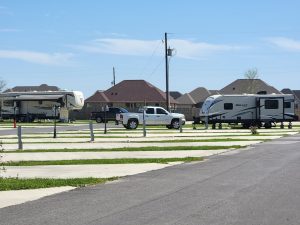
Chris and I visited two separate RV campgrounds in South Louisiana. Not only did I learn the questions to ask when evaluating, but also saw first hand how to negotiate to purchase one.
Whether I buy one myself or invest with a group; what I learned watching him negotiate was priceless.
Important information such as the expenses + gross income is one of the keys to a successful outcome for potential RV park ownership.
Both of the owners stated they’ve seen an uptick in renters since the pandemic. It seems that people got tired of being cooped up at home. So many of them cashed out some of their 401k money, bought RV campers, and hit the road.
In the last few years, the RV park industry has seen millennials becoming RV owners, retiring baby boomers enjoying the RV life, and the 35-55 year-old crowd taking a larger market share than the typical 60+ buyers.
With this resurgence in popularity and millions of people itching to get away from city life, owning an RV park may seem like a good business move.
But, is owning an RV park profitable?
The initial cost of buying an RV park is between $50,000 to $3,000,000+.
This is true for both the acquisition of an established park plus buying of essentials such as:
- land
- electric and water hookups
- parking pad installation
- licensing and permitting
- electric and water hookups
- septic system installation
- other construction costs
Although the initial costs are steep, RV park owners see, on average, a 10% to 20% return on investment with $60,000 earnings annually.
#1. Starting from scratch vs established park
In case you haven’t noticed lately, costs for new construction have skyrocketed. If you’re a busy professional like me, purchasing an established RV park maybe the better route to go with less headaches.
Buying an existing park will already have essentials such as:
- parking pads
- electric/water hookups
- gravel/concrete
- septic system
By having these in place plus the permits and licenses, this makes it even more tempting to purchase an existing park.
Some of the downsides to purchasing an existing RV park are:
- location is already locked in
- large upfront cost
- possible repair costs
#2. Land
In real estate investing, the first thing to consider is the location. If you’re considering building a park from scratch, the location should be heavily considered along with the construction costs and any county restrictions.
Let’s break these down even further…
a. Location
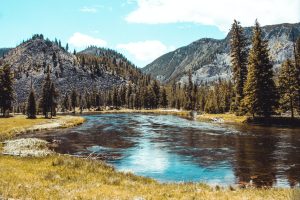
Finding the right location to build a park is an important factor to consider.
Occasionally you’ll run into states or communities that are NOT RV-friendly or have topography that’s not attractive to potential visitors.
You’ll need to consider a high-traffic site near where people travel long distances to visit (national parks, scenic areas, etc.)
Also, you should factor in the number of RV spots you potentially want on your property.
A rule of thumb is that one acre should fit 10 campsites.
b. Cost
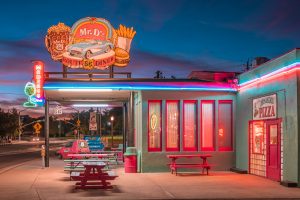
You’ve probably heard the phrase, “you get what you pay for.”
If someone is trying to sell you cheap land for a successful RV park, then be aware of potential problems.
Before purchasing, consider researching whether it’s in a flood plain and have soil samples taken to make sure it can withstand new park construction.
Another consideration is the cost to purchase the land itself. Most park owners have an average of 10% to 20% ROI on their real estate investments. By knowing this, take into consideration what the monthly payments would be and the amount of time to pay off the loan.
c. Restrictions
One of the most overlooked things new park owners run into has to do with country land restrictions. Most people are under the impression that land can be used at the owner’s discretion.
If someone wants to buy a lot and build a restaurant, then typically they don’t give it second thought it may not be able to be done.
Examples of country restrictions include:
- minimum structure size
- structure height
- utility lines
- farm animals/hunting
- land use (commercial, recreational, industrial, etc.)
- septic tank installation
- number of dwellings permitted
As you can image, many of these zoning restrictions catch a potential new park owner by surprise.
#3. Cost to build
One of the largest expenses RV park owners will run into are building costs. If want to save money, then consider offering a non-hookup site.
This means there’s no water, sewage or electricity available. If you plan to cut out amenities to save money on the initial investment, you may turn away business.
One of the highest priced items will be laying down the concrete parking pads. This can cost anywhere between $4-$8 per cubic foot depending on your area.
Also, depending on the concrete thickness, size, material costs and labor, you’re looking at spending anywhere from $3,500 to $8,000 for one parking pad.
a. Septic
Septic systems are what holds the raw sewage from the campers visiting a park.
Costs to install can range from $5,000 to over $20,000 which include:
- site inspection
- soil testing
- schematics
- installation
b. Water
Typically, counties require landowners to have some form of water access whether from a well or municipal supply.
Costs to bring access to land range from $2,000 to $25,000.
c. Electricity
The costs to run electricity to land for a park will be determined based on how far the land is from a city (or grid).
Costs for this can vary between $10,000 – $30,000+.
What’s The Return On Investment (ROI) With RV Parks?
Typically compared to other asset classes, RV parks offer a higher ROI ranging anywhere from a 10-20% return on the initial investment.
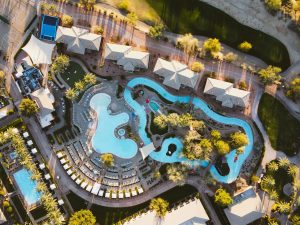
One of the best ways to ensure the highest return possible it to look for parks with attractive amenities in place.
Some of the biggest RV parks are like theme parks that have:
- lazy rivers
- spray parks
- large pools and hot tubs
Other amenities that could be offered include wifi, fitness centers and dog parks.
Other ways to ensure a higher ROI would be to find properties with existing infrastructure in good shape (electrical, water, etc) to avoid upfront costs.
Other Considerations For An RV Park Business
I teach my kids that if they get good at marketing, sales, and customer service, it will take them far in life no matter their career choice.
Whether you purchase an existing park or build one from scratch, make sure you have competent on-site management. As with any investment property, having poor property management in place can negatively impact your asset.
Another consideration is that people need to know your park exists, right? Having a marketing strategy for RV park listings needs to be in place to make people aware of your park to ensure the best possible return on your investment.
Finding someone to help with advertising will involve:
- email marketing
- social media
- Google ads
- website
Is Owning an RV Park a Good Investment?
For many people, RVing is now the way to escape the city life grind and tour the country.
After the pandemic, RV travel represents one of the safest ways families can travel together and enjoy themselves.
As this type of travel continues to gain popularity, RV parks should be considered when it comes to investing in real estate.
Especially if you want to diversify your real estate portfolio with the potential to get a better return on your investment.
Remember, before you buy or invest, consider the park’s location, extra amenities, and size.
RV parks need much less attention and upkeep than other types of commercial property, making them an excellent option to invest in.
If you want to learn more about RV park investing, check out my one-on-one interview with one of the biggest players in the RV space, Ricky Jenkins:
Join the Passive Investors Circle
